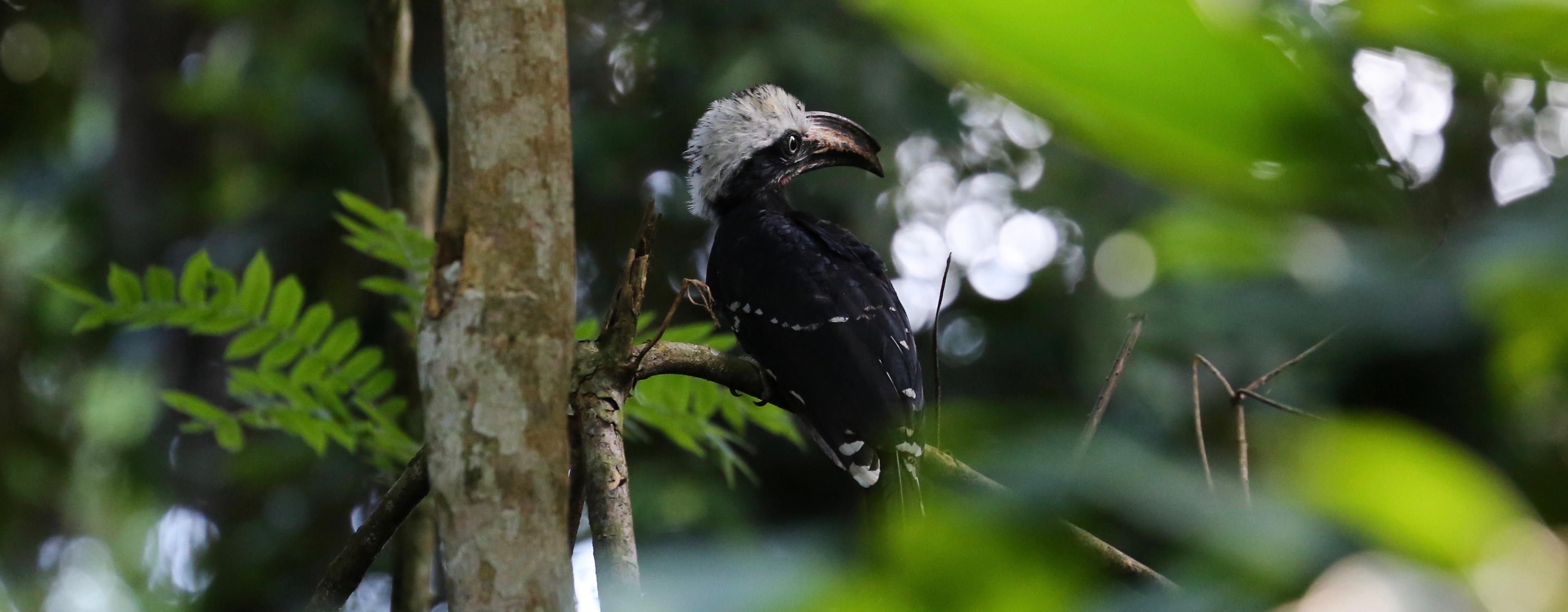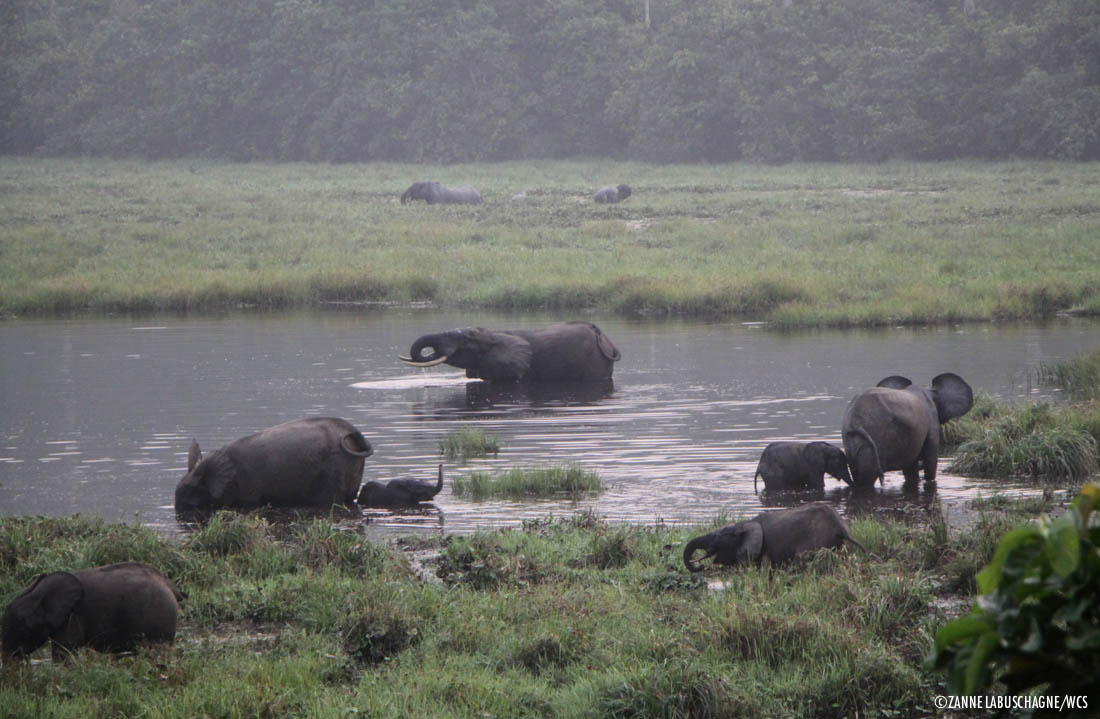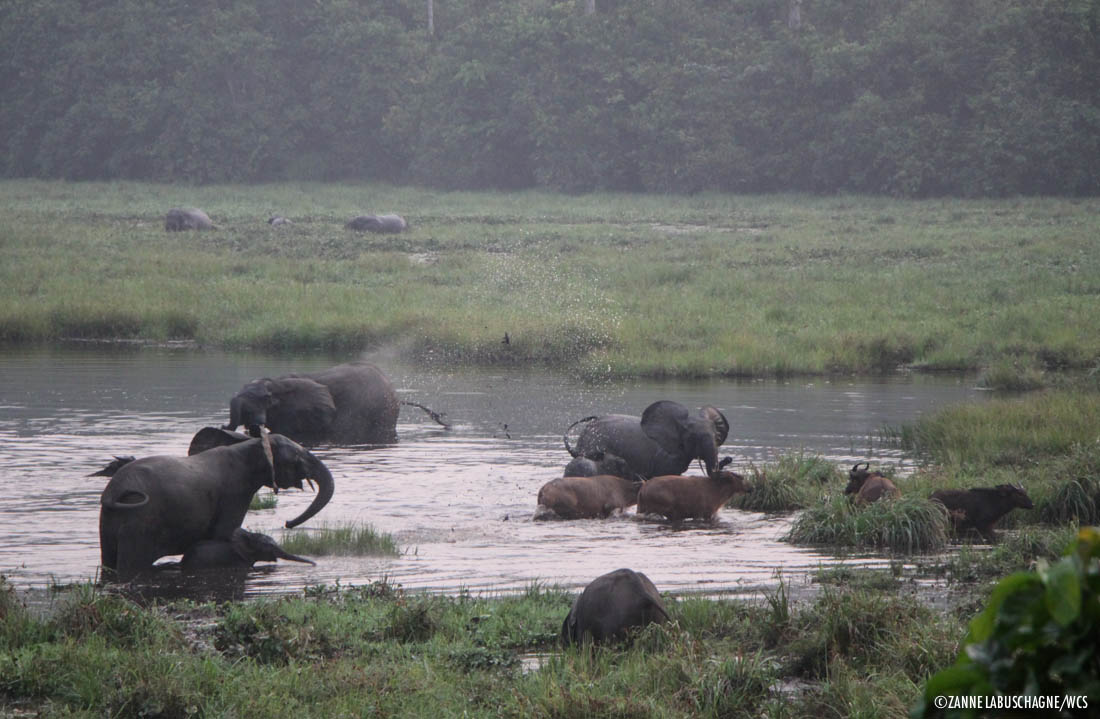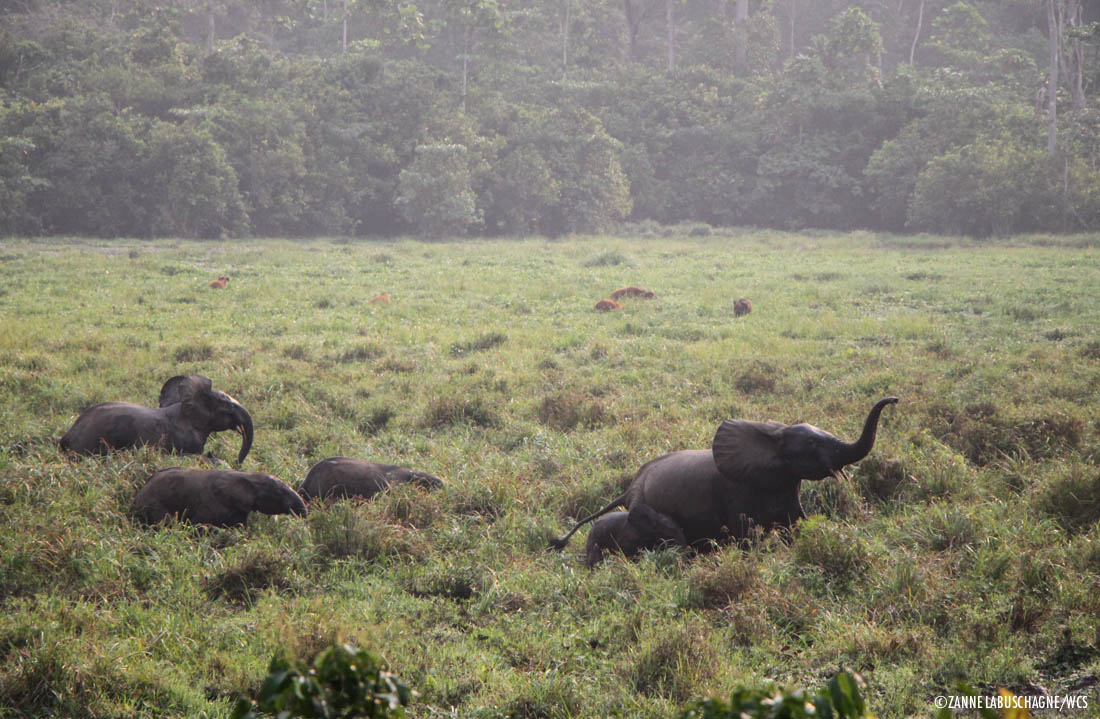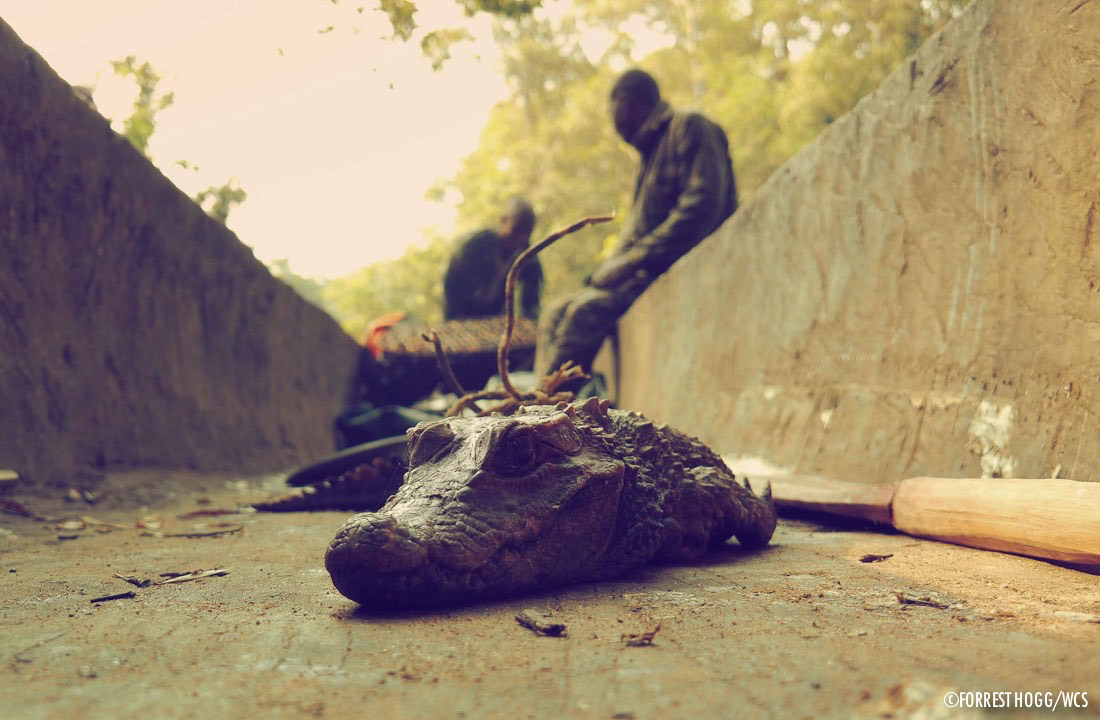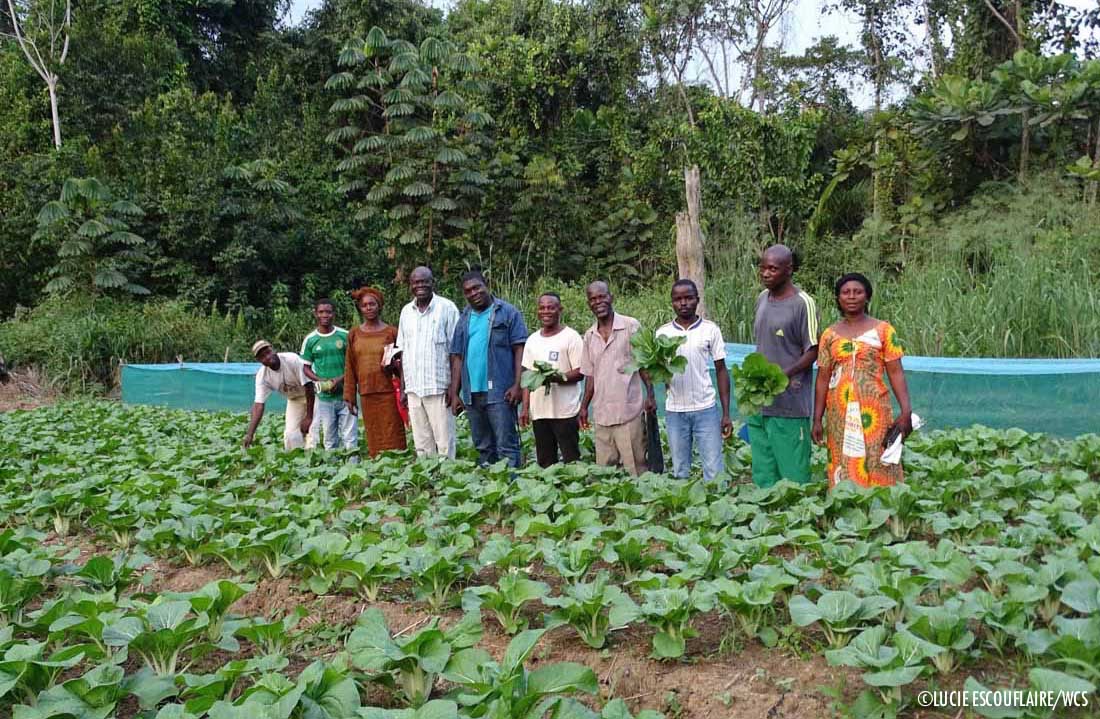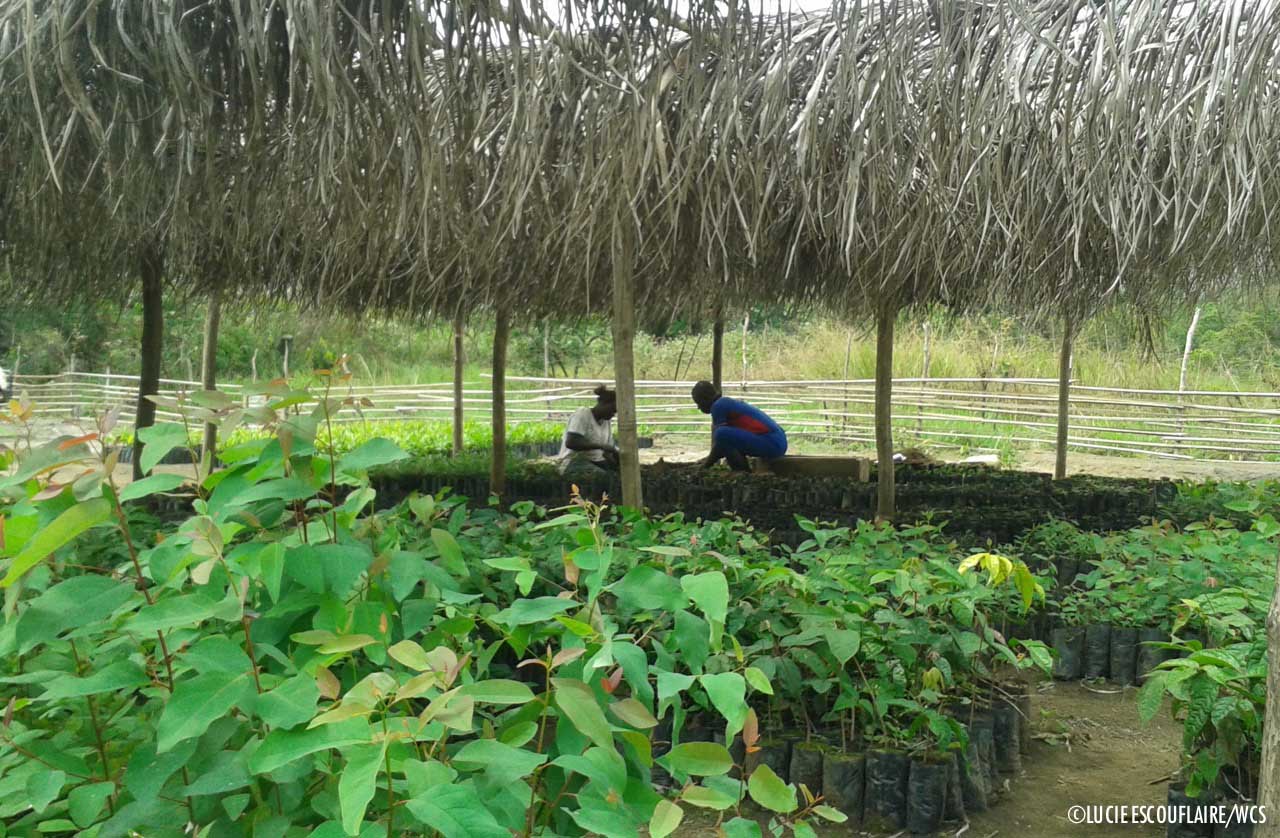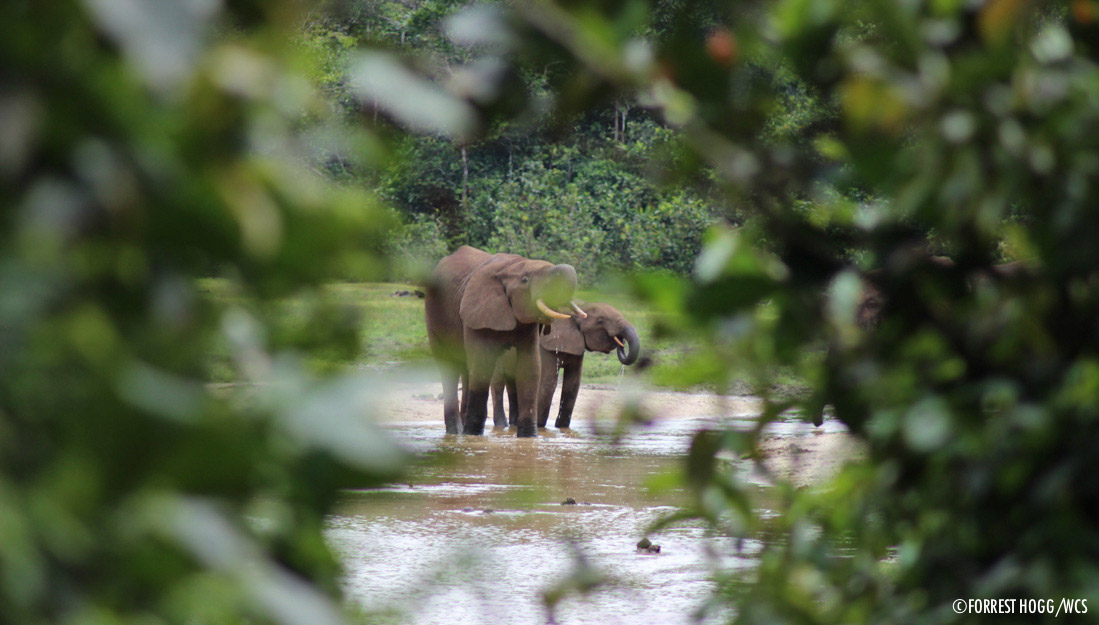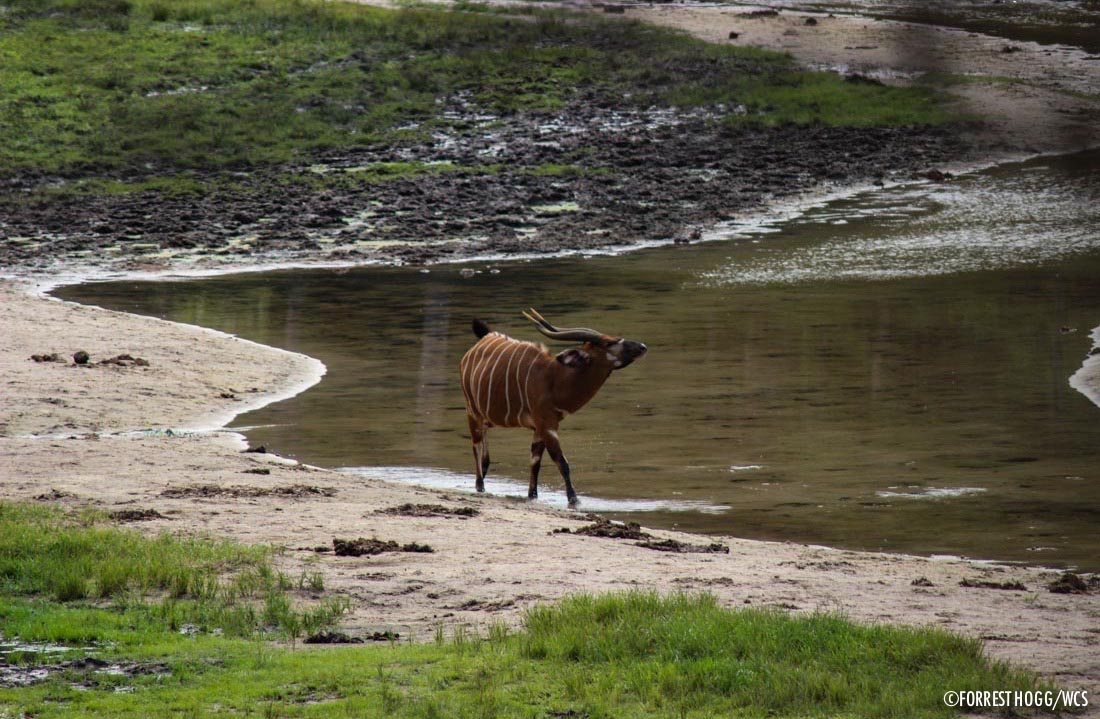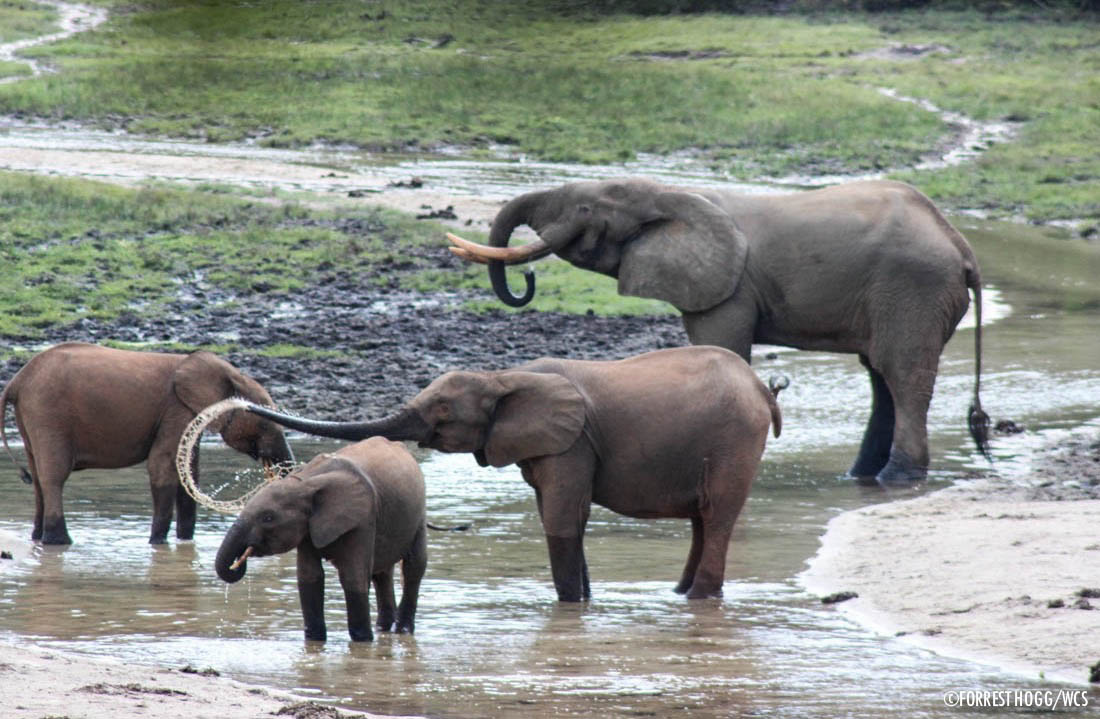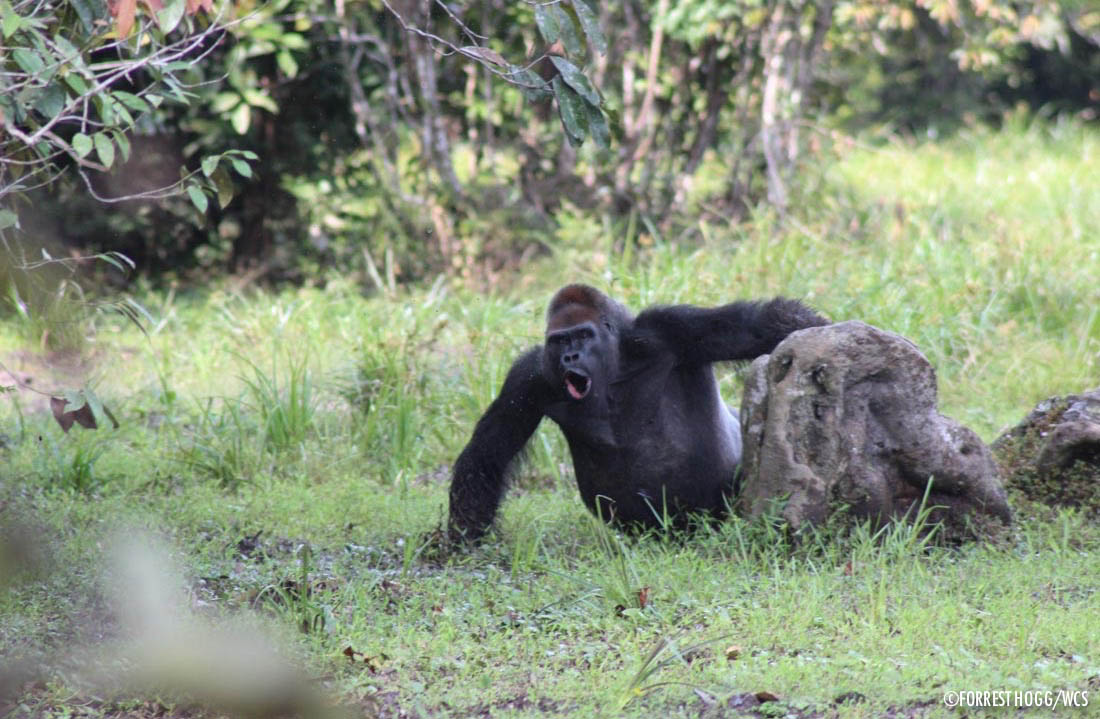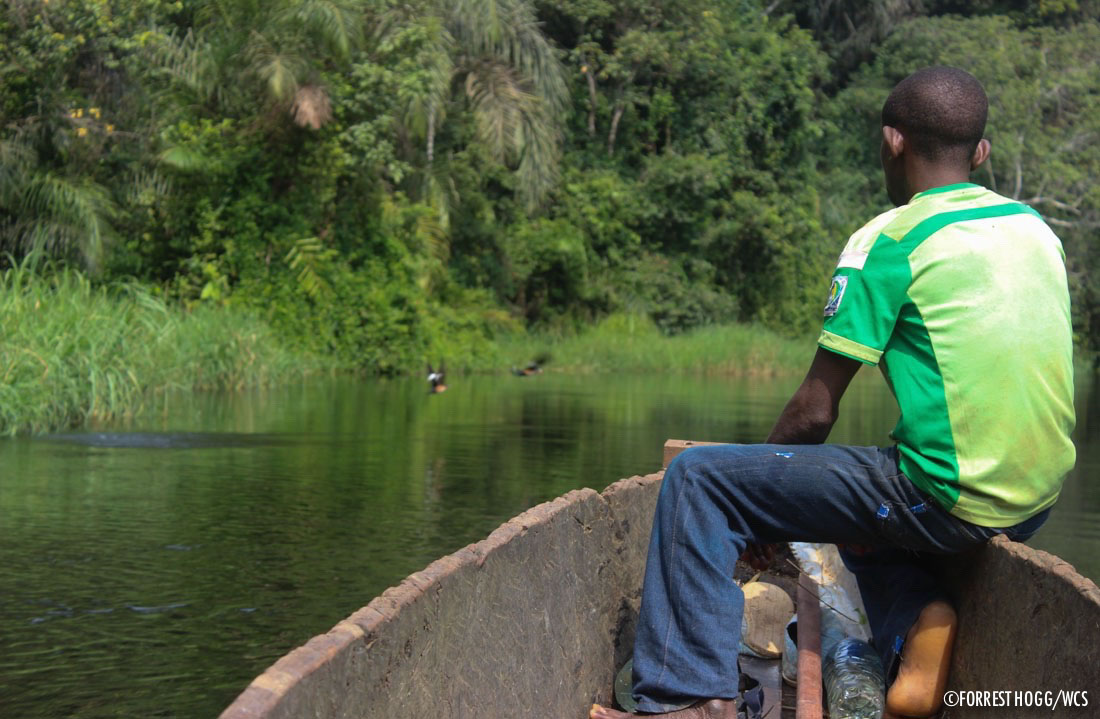Pachyderm gauntlet
Our excitement rises as we sneak up the ladder onto the deck of the Mbeli bai mirador. Stepping up onto the platform we remove our shoes to avoid disturbing the wildlife. Early morning mist rises off of the main pool, draping the group of forest elephants enjoying its mineral deposits and lush vegetation in a shroud of mystery. There are two young calves in the group, one so small that it slips under its mother’s...


